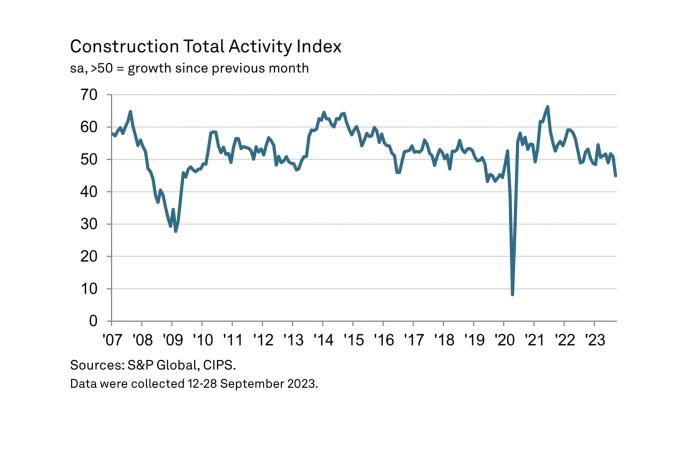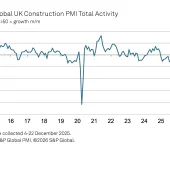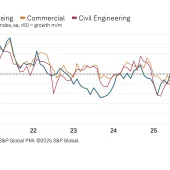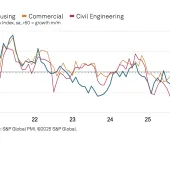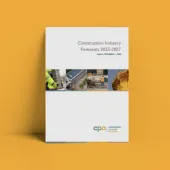Total industry activity decreased for first time in three months and at fastest pace since May 2020
SEPTEMBER PMI data pointed to a reversal in fortunes for the UK construction sector as total industry activity decreased for the first time in three months and at the fastest pace since May 2020. All three main segments of construction work posted a reduction in business activity, led by a steep and accelerated fall in house building.
The headline S&P Global / CIPS UK Construction Purchasing Managers’ Index (PMI) registered 45.0 in September, down sharply from 50.8 in August and below the neutral 50.0 value for the first time since June.
Residential work (index at 38.1) was by far the worst-performing area of construction output during September, followed by civil engineering activity (45.7). Aside from the pandemic, the latest fall in housing activity was the steepest since April 2009. Survey respondents widely commented on cutbacks to house-building projects amid rising borrowing costs and weak demand conditions.
Commercial building declined at only a modest pace in September (index at 47.7), but this represented a considerable setback after the solid growth seen throughout the summer. Some firms noted that worries about the economic outlook had dampened client demand and led to a lack of new work to replace completed projects.
Total new business received by construction companies decreased for the third time in the past four months during September. Moreover, the rate of decline was the steepest seen since May 2020. Construction companies typically cited sluggish demand conditions and a severe drag on new orders from reduced workloads in the residential building sector.
Meanwhile, purchasing activity decreased at a solid pace in September. This reflected weaker order books and efforts to reduce inventories. Supplier performance once again improved at a robust rate. Delivery times for construction products and materials have now shortened in each of the past seven months.
The number of construction firms predicting a rise in output over the year ahead (41%) continued to exceed those forecasting a decline (17%). This was linked to long-term business expansion plans and hopes of a turnaround in customer demand. However, the overall degree of confidence slipped to its lowest since December 2022 amid concerns about higher borrowing costs and weaker housing market conditions.
Tim Moore, economics director at S&P Global Market Intelligence, said: ‘Output levels declined across the UK construction sector for the first time in three months during September and the latest downturn marked the worst overall performance since the early stages of the pandemic.
‘A rapid decline in house-building activity acted as a major drag on workloads, with construction companies widely commenting on cutbacks to new residential development projects in the wake of sluggish demand and rising borrowing costs. Concerns about the domestic economic outlook also dampened client spending during September, which contributed to the fastest reduction in commercial building since January 2021.’
With lower demand across the supply chain having contributed to a robust improvement in delivery times for construction productions and materials, alongside a stabilization in purchasing costs during September, Dr John Glen, chief economist at the Chartered Institute of Procurement & Supply (CIPS), said: ‘There is some comfort in the fact that the days of disrupted supply chains and soaring inflation are behind us for the time being, with delivery times continuing to fall and input prices remaining stable. The lack of activity has given space for suppliers to catch up with demand and create slack in the supply chain, which the construction sector will be hoping to take advantage of once demand returns.’

